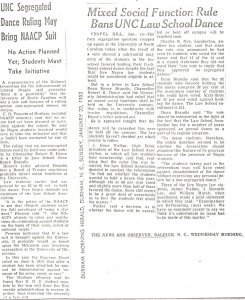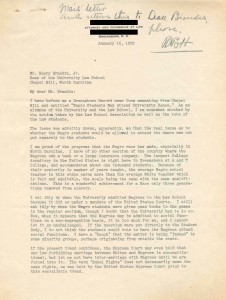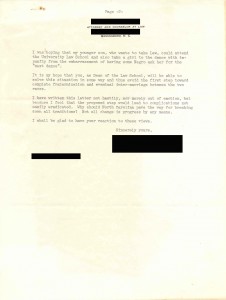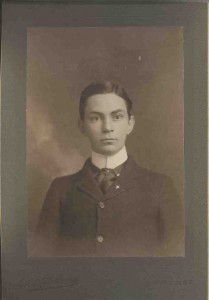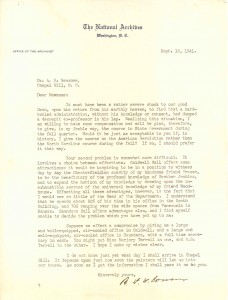“Shall the Law School Association sponsor and pay for a dance this coming spring?” reads a ballot that was distributed to UNC School of Law students in January 1952. The student organization had sponsored a dance for a number of years, but the issue of whether or not the association would sponsor a Spring dance in 1952 came up for a vote because of a controversy surrounding the five black students that had enrolled in the School of Law the prior summer—since all School of Law students were default members of the Law School Association, which sponsored the dance every year, these five black students had the privilege, as did every other law school student, of attending the dance.
However, the University ruled that there were to be no integrated social functions held on campus, and the Law School Association debated whether the dance should be canceled or desegregated and held off University grounds. A slight majority of those that voted, fifty-six percent, voted to hold the dance despite the fact that black students would be in attendance, while forty-three percent voted to cancel the dance altogether.
The question of the dance, and the associated fears of race mixing and miscegenation that it raised, made headlines in newspapers across the state. Upon learning that there was a possibility of a desegregated dance, one concerned parent wrote to then-dean of the law school Henry Brandis imploring him to take action against “this socialistic trend” towards equality and posed the question, “Why should North Carolina pave the way for breaking down all traditions?”
Ultimately, the dance was never held because the association could not find an acceptable venue in the area that would permit an integrated dance.
The early 1950s marked a tumultuous time in the University’s history concerning racial desegregation. For more information visit the NCC online guide to desegregation at UNC, 1930-1950 and Office of the Chancellor: Robert House, collection 40019, box 2, folders ‘Integration: General, 1933-1957′ and ‘Integration: Clippings, 1955-1956.’

